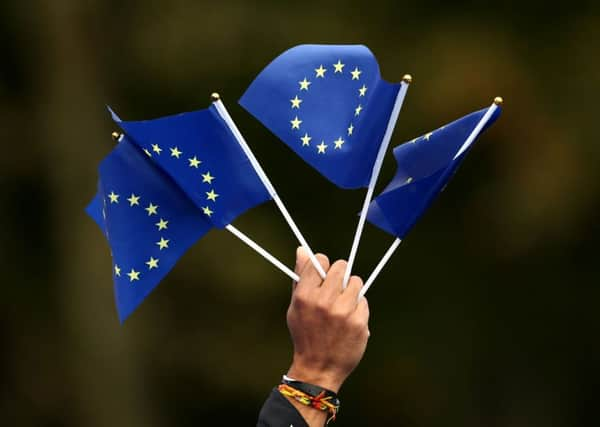Bernard Ingham: Brexit is our chance to restore authority to the Mother of Parliaments


AS a member of the Government Information Service for 24 years, I was required to be politically neutral. In view of the Government’s wishy-washy leaflet advocating remaining in Europe, I thought I would see if I still had it in me to write a neutral referendum leaflet for Government issue. Here goes:
The Government is giving you an opportunity on June 23 to decide the nation’s future.
Advertisement
Hide AdAdvertisement
Hide AdThe referendum issue is simple: do you wish to remain in the European Union and maintain the established order, or do you wish to recover Britain’s sovereignty as an independent democracy?
First, a note on the constitutional position. The EU is a curious umbrella for its 28 member democracies. It is characterised as a bureaucracy because it is run by an unelected group of national nominees called the Commission.
The European Assembly, or Parliament, has limited powers. Overall, decisions, including law-making, are theoretically controlled by elected Ministers of the nation states sitting in a Ministerial Council. In that Council, the UK has a weighted vote worth eight per cent of the total.
Unlike the United States – as President Barack Obama should acknowledge this week in advocating Britain’s continued membership – the EU is not fully democratic with a federal government in Brussels.
Advertisement
Hide AdAdvertisement
Hide AdNonetheless, it now generates most of the laws which the UK is required to observe and its courts have precedence over the UK’s. This situation is anathema to those who want to restore British sovereignty.
Over and above this, they argue that the EU is failing because of the damage inflicted on the economies of the 19 states, especially in southern Europe, that subscribe to its constricting single currency; that it is so corrupt and fraud-ridden that the auditors have not been able to sign off the accounts for 20 years; and that the Commission seeks to extend its authority at every opportunity with the aid of the other institutions of the Union.
Some who wish to remain in the EU acknowledge its “warts and all”. But they are concerned about any international disruption Britain’s exit might cause when the world economy is in a fragile state, militant Islam seeks to terrorise the West which is under siege from mostly Islamic migrants, and Vladimir Putin muddies the waters at every turn.
Many might agree that this is not the ideal time for the referendum. But it is far from clear how Britain’s departure from the EU would upset the international applecart when no one intends we should withdraw from a European or a world role and will remain fully engaged in NATO with the USA – the real preserver of EU freedom for the last 70 years.
Advertisement
Hide AdAdvertisement
Hide AdNobody can, however, forecast with certainty what will happen whether we stay or leave. The future seems clearer if we remain a member of the EU. It will be emboldened to continue on its present course and progressively build a United States of Europe in which increasingly the UK becomes an offshore region of a wider empire of 500 million people.
The Government claims its re-negotiation of the terms of membership has insulated us against the EU’s concept of “ever closer union”. It remains to be seen how this will work out along with other aspects of our negotiated “special status” – exemption from the single currency, restrictions on welfare for new EU migrants and retaining our own border controls, plus an EU commitment to reduce red tape.
Some members of the European Assembly doubt whether these pledges are legally binding.
The opposition to the UK’s exit from Europe is founded mainly on fears about our economic future, with doubts about the effect on jobs, prices and travel. But those arguing the pros and cons are much more closely balanced than in the past.
Advertisement
Hide AdAdvertisement
Hide AdThe effect of scaremongering is somewhat reduced when it is realised that the UK economy is far healthier than the Continental, we buy more from Europe than vice versa and as an independent nation we could trade freely with the world.
The truth is that our economic success probably depends more on the UK’s entrepreneurial flair and drive than our membership of the EU – unless, of course, Europe is motivated by angst for our having had the temerity to walk out and cuts off its trading nose to spite its face.
In short, there are risks both ways. Remaining in the EU gives the impression of greater stability. Leaving would restore authority to the Mother of Parliaments. Which do you want?
Sir Bernard Ingham was Margaret Thatcher’s chief press secretary from 1979 to 1990.